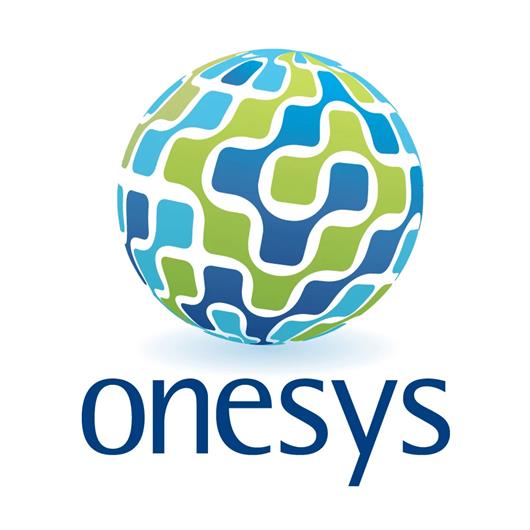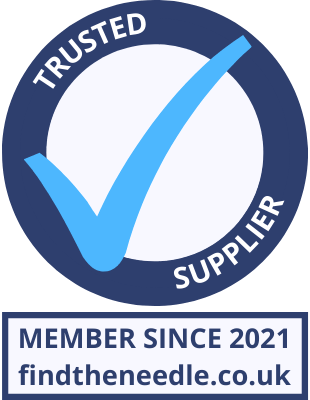 Add My Company
Add My Company

Manufacturing is constantly changing. Few could have predicted the magnitude of disruption that would occur in 2020 and beyond. This dramatic shift has led to more manufacturers considering cloud solutions.
What is cloud-based software? How does it differ from on-premise systems and what are the main advantages of moving to the cloud?
What's cloud-based software?
Cloud-based software can be accessed via the internet and is typically browser agnostic.
With cloud-based software, you pay a monthly fee to a provider (this is also known as Software-as-a-Service), which allows you access to their system. Instead of having to host your servers yourself, the provider hosts them for you.
What are some of the benefits to cloud-based software?
Cash Flow
A subscription model allows for cashflow protection, which is vital for small to medium sized manufacturers. Large set-up fees are common for on-premise systems. Then there are the ongoing costs of maintaining it.
Cloud-based software is free from financial surprises. Every month, you know exactly what you are paying. This includes all ongoing software updates and any support that you may need.
Manufacturers can plan ahead and budget accordingly. You can save money and invest it in other areas of your business.
Increased accessibility
As the pandemic forces many to work from home it is crucial employers have the facilities in place to facilitate this, with this trend now likely to become a norm moving forward.
Accessing data remotely via the cloud and updating financial, inventory, or sales information is far simpler and can be achieved from any location, at any time. In the instances where there is an emergency, this ease of access can be the difference between avoiding disaster or not.
Improved security
Cloud providers host their systems off-site, which makes the risk of them being damaged or stolen far less likely.
Providers continuously monitor hosted servers and will take regular backups of all your data to ensure there is a safety net in case the system crashes.
Software is automatically updated at regular intervals to ensure that the most recent security protocols are in place. This ensures the system is compliant with all current legislation.
Better performance
Cloud-based software can improve a manufacturer's overall performance; as the data is reported in real time, the financial information is more accurate. This in turn makes predictions which may influence important long term decisions making more accurate.
It reduces the chance of customers ordering out-of-stock products by having inventory data updated immediately.
Cloud solutions can also help businesses save time. No longer is it necessary to send a technician out to update the software on every computer.
This efficiency increases the speed of the entire supply chain. This time can be used by manufacturers to focus on value-adding activities.
Cloud computing ultimately gives manufacturers an advantage over competitors who are not using this technology.
Scalability
Manufacturing SMEs that are looking to expand may have concerns about software becoming unfit for purpose, leading to frequent investments being required.
Cloud-based systems are highly agile and can be scaled up or down as needed to meet your business's needs. Whether you are facing quieter times, it can adapt accordingly and vice versa as you grow.
Cloud-Based Software vs. On-Premise Software
On premise (or on-prem) still has a place in the market, but cloud is becoming more and more attractive in almost all industries where comprehensive IT systems are in place.
This is due to a number of factors including but not limited to:
Offer of newfound flexibility for SME’s through to Enterprise sized organisations
Faster pay back
Improved agility
Improved scalability
Higher ROI
There are a number of advantages of a cloud solution:
Scales as you grow easily once implemented
Always on
Replaces the burden on IT, resources and infrastructure
Upgrades, patches and fixes are all included and done in the background – so no downtime required
State of the art 24/7 security with included disaster recovery
Can work from anywhere as cloud is typically browser agnostic
Not dependent on a ‘particular’ server/hosting again reducing the risk of downtime
What cloud-based system should manufacturers use?
Using different business software within each department of the business can be restricting, with departments never being able to truly synchronise. Data across the organisation will likely be inconsistent with this lack of cohesion preventing SME manufacturers performing at a level they could be.
Manufacturing Software such as BCE not only offers the advantages that come with being in the cloud, but it also allows you to unify all your activities within one system. This includes accounting, ecommerce, contact management, inventory control, and production planning.
Any changes in one area of the system will impact on other areas allowing for a level of automation that was not possible before. When a sale on your e-commerce platform takes place, this will then be reflected in stock levels, influencing orders which are placed with suppliers.
These sales activities will also be reflected in your finances. Your accounting team will have a continuous snapshot of your overall financial health.
Manufacturing Software such as this has strong reporting capabilities. This combined with accurate data allows you to make valuable predictions about market trends, customer behaviour, and product demand.
The Manufacturing Software we provide is a web-based solution that unifies all of your business processes. It's ideal for small- to medium-sized businesses.
For more information on Reasons Manufacturers Should Move to the Cloud talk to Onesys

